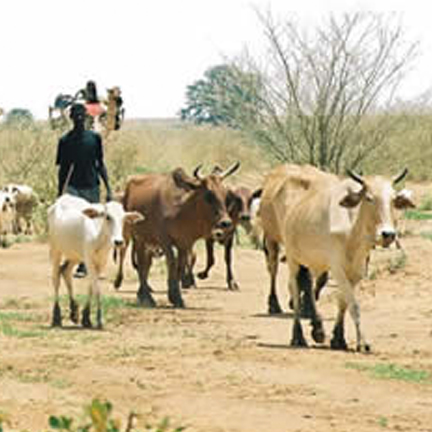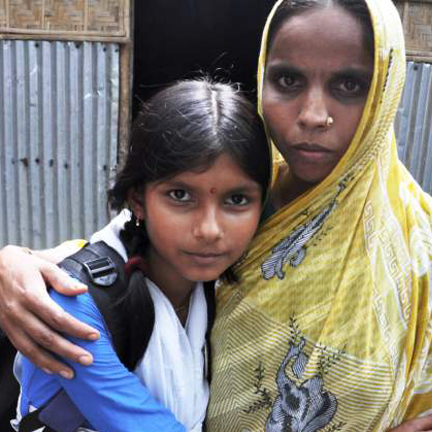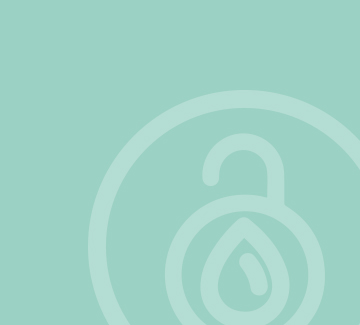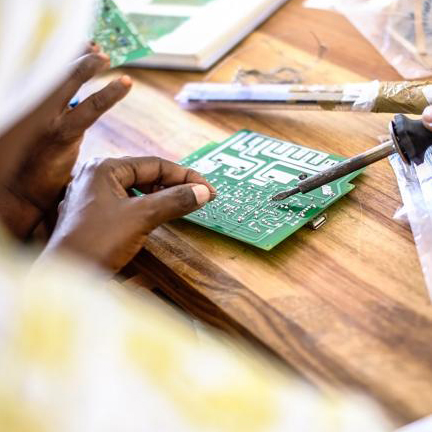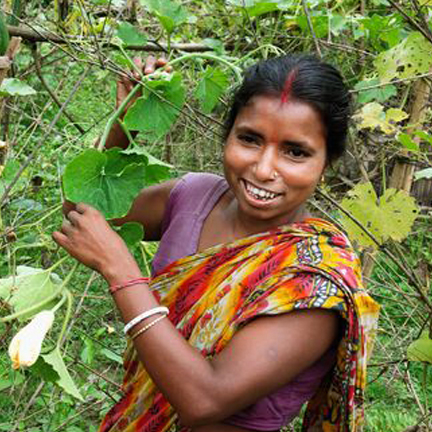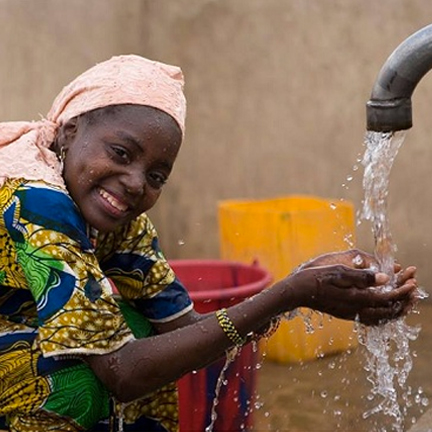Accelerate Access to Resources – Land, Clean Energy, Water, and Sanitation
Improve girls’ and women’s access to resources ― land, water, sanitation, and clean energy ― and they will be healthier, wealthier, safer, and better educated.
When girls and women endure restricted access to resources such as land, energy, water and sanitation, there are far-reaching implications. These can affect their health, education, housing, and livelihoods, as well as the safety and sustainability of the environments in which they live. Gender-sensitive approaches need to be adopted in order to create an enabling environment for effective and secure access to resources.
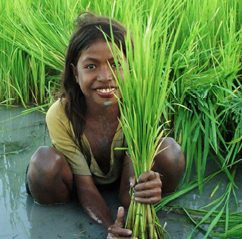
Need Evidence
and Strategies?
-

Women and children spend up to 5 hours per day gathering fuel for household needs
-

Globally, girls and women spend up to 200 million hours per day fetching water
-

Worldwide, less than 20% of agricultural land is held by women
-

Halving the number of people worldwide who cook with solid fuels could average $60 billion in societal benefits per year
-
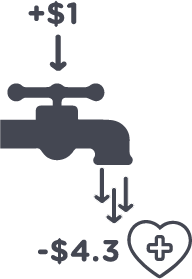
Globally, for every US$1 invested in water and sanitation, there is a $4.3 return in the form of reduced healthcare costs
Investing in girls and women creates a ripple effect that yields multiple benefits, not only for individual women, but also for families, communities, and countries. When women have secure land rights, their earning can increase significantly, impacting their ability to open bank accounts, save money, build credit, and make investments. Solutions focused on access to water, sanitation, and household energy can better engage half the population and break the cycle of poverty.
Solutions in Action
-
Bringing Women to the Table in South Sudan
Following the establishment of the Republic of South Sudan in 2011, SOS Sahel, an international NGO working in partnership with local groups, implemented a resource-based conflict reduction program providing women and youth with natural resource management and conflict resolution skills. Women pastoralists in the region have a reputation for being extremely influential as peacebuilders, but they had been excluded from decision-making processes. SOS Sahel engages women and marginalized groups, encouraging traditional leaders to incorporate them into formal decision-making processes. Through education tools and sessions provided to women in the communities, steering groups with women representatives were developed, and community structures were registered as legal bodies in accordance with Sudanese regulations. -
Multi-Sector Approach to Reducing Malnutrition
In Bangladesh, the Strengthening Household Ability to Respond to Development Opportunities program adopted a multi-sectoral approach to improving the nutritional status of mothers and children in four remote rural areas. The framework focused on enhancing the literacy and leadership skills of girls and women, educating them about sound health and nutrition practices, and installing wells for access to safe drinking water; these interventions led to better health within the communities and a reduction in malnutrition. And by incorporating the importance of proper WASH practices, the percentage of mothers who wash their hands before food preparation rose from 60% to 94%; households with access to safe, clean water rose from 57% to 71%; and the percentage of people with access to a sanitary latrine rose from 13% to 54%. -
-
SPLASH in Zambia
SPLASH (Schools Promoting Learning Achievement through Sanitation and Hygiene), a USAID/Zambia funded WASHplus activity, brought clean drinking water, sanitation, and hygiene education to primary schools in Eastern Province. By providing a cleaner and safer learning environment, SPLASH aspired to improve the health, learning, and performance of pupils and teachers. Activities centered on providing safe water and adequate sanitation and adopting better hygiene practices. As part of the menstrual hygiene management component, girls’ latrines were equipped with washrooms and schools were encouraged to stock sanitary pads and other hygiene consumables, such as soap and toilet paper. The SPLASH program saw an anecdotal increase in enrollment and a 26% reduction in student absenteeism. -
The Barefoot Approach – Women Barefoot Solar Engineers of Africa
The Women Barefoot Solar Engineers of Africa work to improve the lives of the rural poor living in remote villages off the energy grids. These women, many of them grandmothers and most of them illiterate, work in the 21 least developed countries in Africa, helping to supply their communities with clean, low-cost household lighting from solar energy. Since 2005, over 140 women from Africa have trained at the Barefoot College in India. Within six months, these women learned how to fabricate, install, and maintain solar-powered household lighting systems and were capable of transforming the lives of over 2,000 families in solar-electrified villages in Africa. -
The Greatest Predictor of Poverty in India is Landlessness
An estimated 18 million families in rural India are landless and tens of millions more have insecure rights to the land they rely on. Their long-term insecurity and inability to protect and secure the land they depend on is a major predictor of poverty, seeds conflict, and hinders economic growth.38 Since 2000, Landesa has been working to change this reality. By partnering with state and central government leaders, Landesa strives to create opportunity, incentive, and security through strengthening land rights. Landesa supports the creation of policies that strengthen girls and women’s land rights, raise legal awareness, and grant homestead and farmlands to rural women. By working with Indian state government officials and Central government leaders, Landesa has reached more than one million families.40 Increasingly, leaders in India’s poorest states are recognizing that insecure land tenure is a significant hurdle to development and stability. Already, the governments of Bihar, West Bengal, Odisha, Karnataka, Andhra Pradesh, Telangana, and Uttar Pradesh have launched programs to bolster women’s and girls’ land rights. -
WASHplus Program in Mali
WASHplus integrated a WASH/nutrition program in the Mopti region of Mali to reach women of reproductive age and their children in 180 villages in three districts with high rates of stunting. In addition to motivating villages to collectively abandon open defecation and increasing demand for low-cost sanitation, the program places a strong emphasis on improving nutrition and hygiene practices, including handwashing, water treatment, exclusive breastfeeding, and dietary diversity through a range of behavior change approaches. Trained community health workers visit communities to educate women on WASH and also screen for undernourished children who are referred to the community health/nutrition centers for treatment.
Policy Asks
-
Engage women in efforts to advance access to affordable, safe, and sustainable sources of clean energy, including clean cookstoves, throughout homes and communities.
-
Establish clear legal and regulatory frameworks and gender-disaggregated, data-gathering measures to guarantee women’s secure rights to land, including the right to inherit, own, access, control, and participate in land governance.
-
Improve safe access to water, sanitation, and hygiene (WASH), and work with communities and schools (rural and urban) to become open, defecation free, and "girl-friendly."
-
Ensure schools have adequate WASH facilities and supplies and provide education on menstrual health and hygiene management.
-
Focus efforts toward more integrated, gender-centered design to strengthen access to natural resources, land, water, sanitation, and affordable, clean energy.
-
Support women’s development of, access to, ownership of, benefit from, and inheritance of assets, such as land, productive resources, capital, and technology.
-
Invest in research and program evaluations to better understand the links between cookstove and/or clean energy interventions and prevention of gender-based violence, particularly in humanitarian settings.
Partner Resources
-
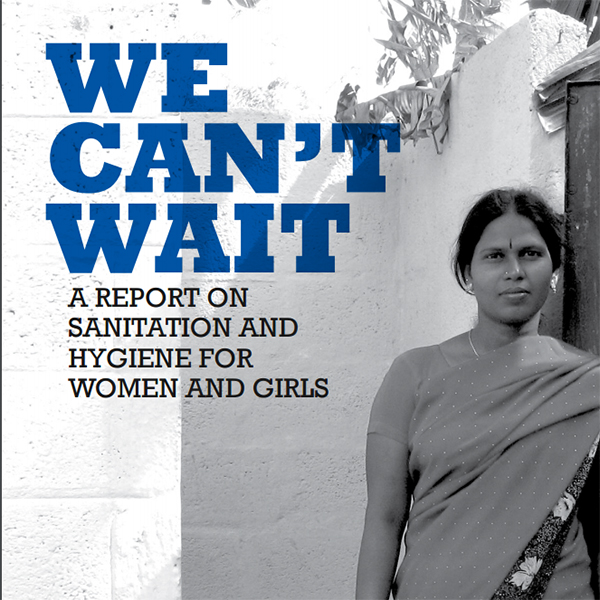
WaterAid
We Can’t Wait makes it clear that governments, civil society and business must work together to improve the health and prosperity of women worldwide.
-
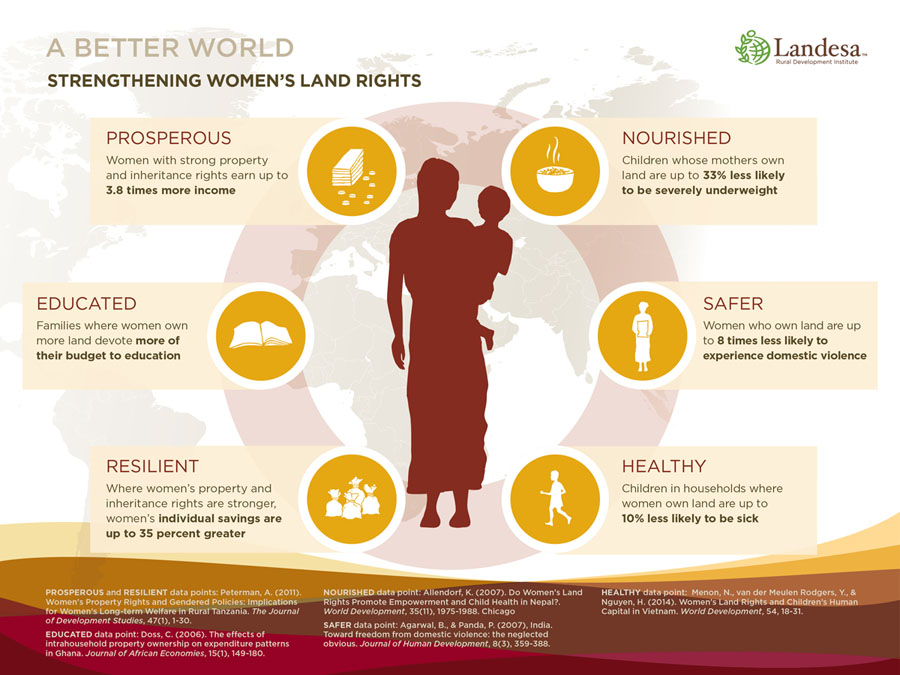
Landesa
This infographic shows that women’s land rights can improve income, health, education, and safety for rural women farmers.
-
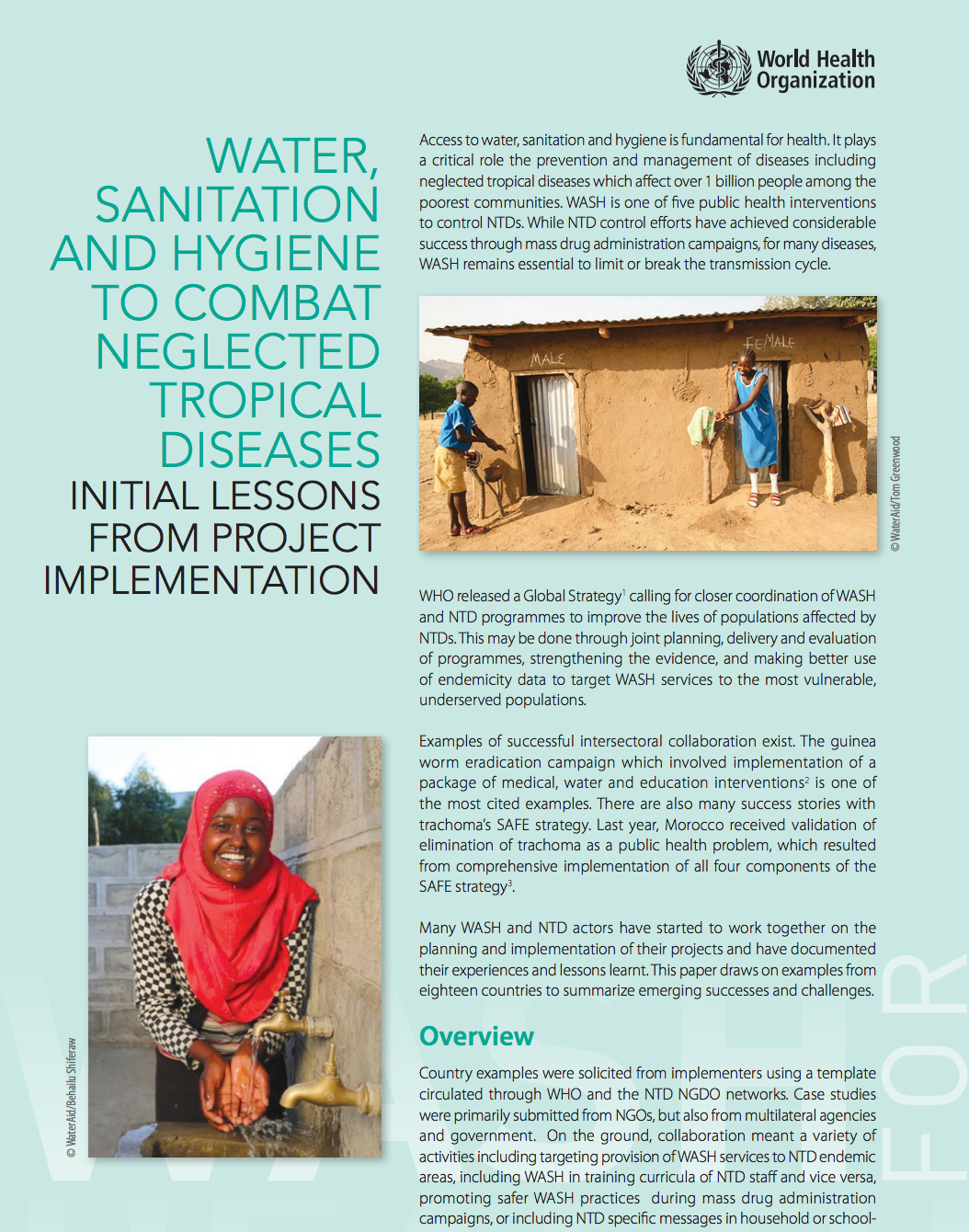
WHO
Initial lessons from WASH initiatives conducted by the WHO: Water, sanitation and hygiene to combat neglected tropical diseases.

